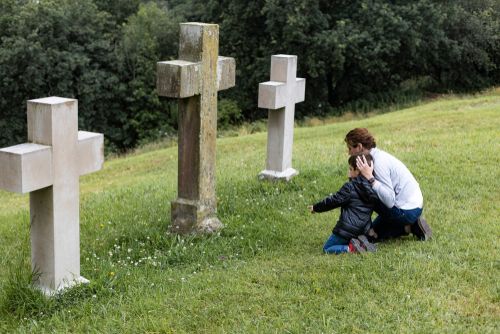 Funerals are important rituals to the surviving loved ones. They’re part of the grieving process and support the reality of the death. Parents often wrestle with whether their children should attend a funeral. There’s really no right or wrong answer, and it depends on many factors. Here are some things to think about.
Funerals are important rituals to the surviving loved ones. They’re part of the grieving process and support the reality of the death. Parents often wrestle with whether their children should attend a funeral. There’s really no right or wrong answer, and it depends on many factors. Here are some things to think about.
The Age of the Child
The age of the child is a big factor in determining attendance at a funeral. Small children may do better with a trusted babysitter to be respectful of other people who are attending. Elementary-age kids can usually sit through a service, but they may need to know what to expect. You may want to give children a choice between going to the funeral or a comfortable option. You could also give the youngster a way out during the service if it becomes uncomfortable.
Help Your Child Understand Death and Funeral Rituals
It’s difficult for adults to talk about death, and explaining it to children can be even harder. Sometimes, the best thing is just to listen and comfort. Let the child direct the conversation. Use simple words to talk about the situation. It’s okay to let your youngster see your emotions about the death. If it’s the first time they have experienced a death, it may take a few days for them to process everything. Avoid euphemisms like “went to sleep.” The more concrete and honest you are, the better.
You should explain what will happen at the service and afterward. You should tailor your conversation to the age of the child, but try to keep it positive. Attending a funeral is a way to remember your loved one. The funeral reception is a way to help each other feel better by sharing memories of the loved one. If your child was close to the deceased, you can also give them a way to be involved. Maybe they could choose a poem to read or a song that is played during the service.
Let Your Child Direct Their Participation
Every family has their own traditions around death. While those rituals may be important to you, your young one may not be ready to experience them. Not everyone wants to view the deceased’s body in the casket. Take your cue from your child and let them participate as they choose. You can share your beliefs about death and traditions, but don’t force the kid to do anything they don’t want to.
Support Your Child’s Grief
After a discussion about death, it can help to change the subject to something that makes the child feel better. It’s okay to feel sad, but it’s also okay to continue with life. Go for a walk and enjoy nature together. Cook something together. You may have to model healing as part of the process. You can talk about your loved one without giving up on life. Listen to how your youngster is feeling and try to explain what you can.
Get Help When Needed
It can be difficult to deal with a child’s emotions when you are grieving yourself. It’s okay to ask your kid’s support system for help during this time. When your child doesn’t seem to be moving forward, you may need to get them or yourself professional help. Many funeral homes have resources for grieving families. You may want to take your youngster to a therapist who is trained in grief.
Death is an uncomfortable topic, and it can be difficult to explain it to your young one, as well as to decide whether they should attend a funeral. Take your cues from your child.